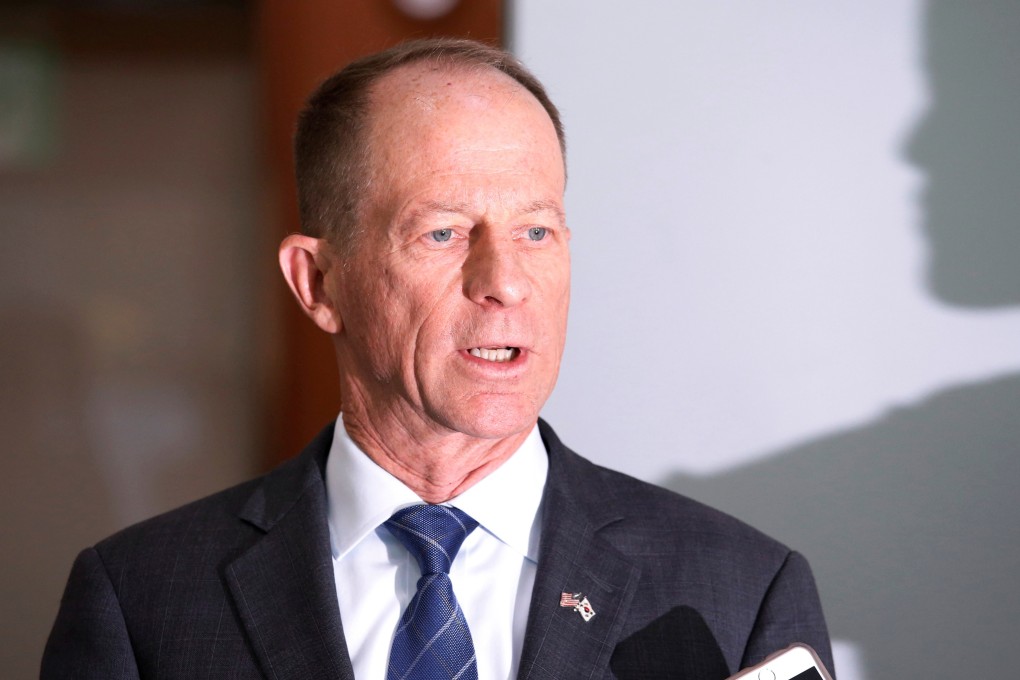US moves bolstering Taiwan are meant to ‘restore balance’, US diplomat David Stilwell says
- Recent visits, agreements, US diplomatic support and military sales to Taipei are deemed an ‘adjustment’ in response to Chinese aggression
- Ties between Washington and Taipei have warmed significantly in recent months, something of a mirror image of deteriorating US-China relations

The United States and Taiwan will establish a new economic dialogue focused on semiconductors, health care, energy and other technology sectors in a sign of stronger ties, a senior US diplomat said on Monday.
A slew of recent visits, agreements, US diplomatic support and military sales to Taipei don’t reflect a change in US policy but rather an “adjustment” in response to increased Chinese aggression, the official said.
“We must act to restore the balance,” David Stilwell, assistant secretary of state for East Asia and the Pacific, said in remarks to the conservative Heritage Foundation think tank. “Looking to Hong Kong, it is clear that Beijing is willing to disregard international obligations to extend its authoritarian system.”
Beijing’s actions include stepped-up military exercises near Taiwan, efforts to deprive the self-governing island of diplomatic allies and a bid to push it out of international organisations, Stilwell added.

US health chief offers ‘strong support’ to Taiwan in landmark visit